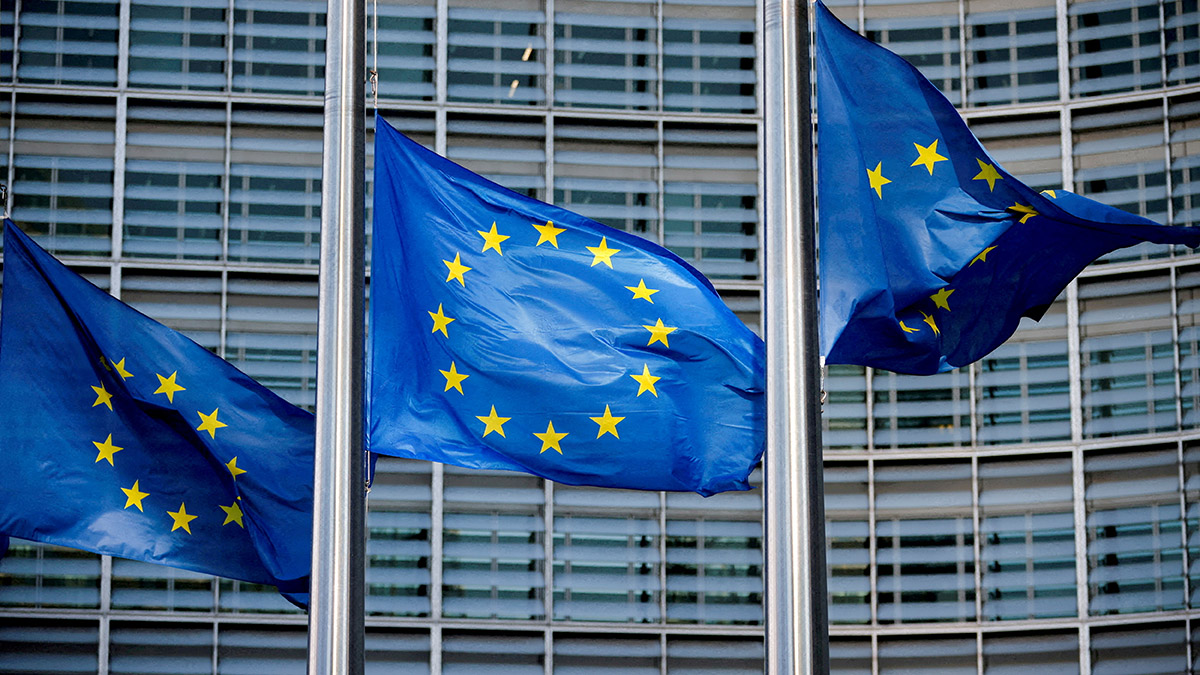Georgia’s aspiration to join the European Union has been put on hold due to the recent passage of a controversial foreign agents law read more
)
(File) European Union flags fly outside the European Commission headquarters in Brussels, Belgium. Reuters
Georgia’s aspiration to join the European Union has been put on hold due to the recent passage of a controversial foreign agents law.
The EU formally suspended Georgia’s accession bid this week and froze €30 million ($32.5 million) in financial support designated for the country’s defence ministry in 2024. “This is only the first step,” said EU Ambassador to Georgia Pawel Herczynski.
It is disheartening to witness EU-Georgia relations at such a low point, especially when they could have reached unprecedented heights," she said.
A Russia reminder in the law
The contentious law requires civil society organisations and media outlets receiving more than 20 per cent of their funding from abroad to register as “agents of foreign influence.”
Critics argue that this legislation mirrors Russia’s efforts to restrict free speech and suppress dissent. The European Union had previously cautioned Georgiai that enacting this policy would be incompatible with EU membership.
The trigger, a defiant Georgia
EU leaders decided to halt Georgia’s accession process during the most recent European Council summit, following the Georgian authorities’ adoption of the law despite widespread protests.
In a press conference, Herczynski confirmed the freezing of financial support and highlighted the EU’s intent to limit direct aid to the Georgian government, redirecting it instead towards civil society and the media.
What the law says
The law came into effect last month despite mass protests and a presidential veto. It mandates that media, NGOs, and other non-profit groups register as “pursuing the interests of a foreign power” if they receive significant foreign funding.
The opposition has labelled the bill as “the Russian law,” asserting that it serves to stigmatise independent media and organisations, a tactic employed by Moscow.
Why it’s a big setback for Georgia
EU officials have condemned the law as undemocratic and warned it would impede Georgia’s EU membership ambitions. The EU had granted Georgia membership candidate status in December, contingent upon reforms such as combating disinformation, aligning foreign and security policies with the EU, and implementing new justice reforms.
Despite the initial candidate status, membership talks never commenced.
The process requires unanimous agreement from all 27 EU nations and a screening procedure to assess Georgia’s alignment with EU standards.
The law’s enactment prompted EU leaders at the June 27 summit to caution Georgia that its membership path would be obstructed unless the law was repealed. They urged Georgian authorities to reverse their current course of action to avoid derailing the accession process.
Prior to the summit, EU foreign policy chief Josep Borrell hinted at potential financial repercussions and reduced political engagement with the Georgian government. The exact financial impact remains unclear.

 2 months ago
16
2 months ago
16
)
)
)
)
)
)
)
)
)
)
)
)
)
)
)
)
)
)
)
)
)
)
)
)
)
 English (US) ·
English (US) ·